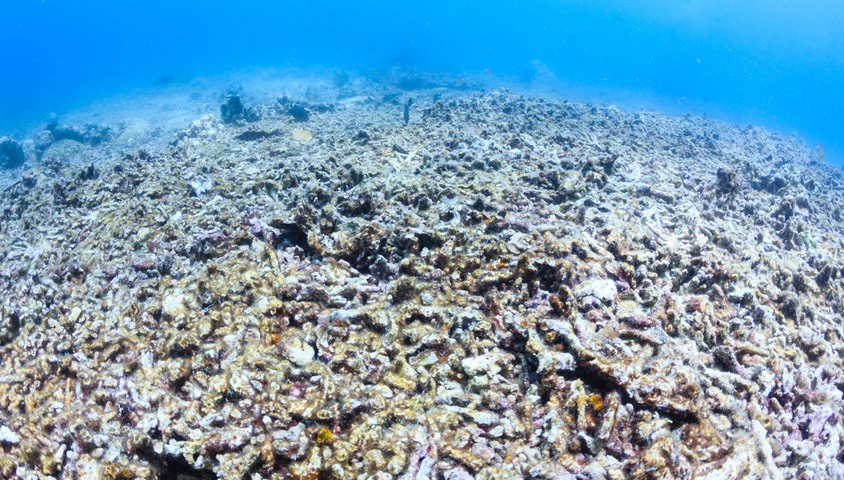Alas, Great Barrier Reef.
Half of the Great Barrier Reef has died since the average reader of this edition of Wild was born or, at least, since Wild itself was born in 1981. The other half may die before you (though Wild, I hope, will live on forever). The reef will have been destroyed in our lifetimes. By us.
Chances are that many readers voted for the six huge coal ports planned for the Queensland coast, at least inadvertently. These ports will facilitate the shipping of so much coal through the reef that, when burned overseas, it will more than double Australia’s greenhouse gas pollution of Earth’s atmosphere. Ninety percent of Australians voted for candidates supporting this disaster.
Besides heating the ocean and promoting coral bleaching (death) through climate change, the carbon dioxide from the coal also seeps into the ocean from the atmosphere and forms carbonic acid. The increasingly acid ocean will inevitably stop coral life in its tracks, just as it will prevent krill from reproducing, thus ending the era of the blue whales on Earth.
I was in Newcastle in March for that city’s buoyant Writers’ Festival. The fourth coal terminal on the Hunter River will return Newcastle to the status of world’s largest coal port. Except for Jenny Leong (Newtown), Jamie Parker (Balmain) and Tamara Smith (Ballina), and perhaps one other, all of the candidates elected to NSW’s house of government a week later backed the accelerated export and burning of coal and, so, the destruction of the Great Barrier Reef. Adam Guise, the Greens candidate for Lismore who was so clearly committed to ending fossil fuel exports also went close to winning a seat from the Nationals. The Wilderness Society‘s campaign ignored him to help the hapless Labor campaign instead.
There is an excuse for much of this. Global warming and acidification of Earth’s oceans is, in geological timing, a sudden catastrophe, but we human beings aren’t around as long as rocks. We think in terms of minutes, hours, days, and years. There is no specific moment when the reef will die so it is not a news event for us: it is uncomfortable background music, which we tune out of easily. When it comes to voting, the trumpeting is about who will cut taxes, turn back uncomfortable boats or build an extra anything. Mostly we are too self-invested or dim-witted to hear or think outside the immediate noise.
Hats off, then, to The Guardian. Its editor is putting global warming on that newspaper’s front page for three months precisely because it is the biggest story of our era but, he says, is unfolding so slowly it is being missed as “news”. What responsible journalism! How different to the Murdoch stable, which fervidly fosters fossil fuels and so too the killing of the reef.
Helping save Earth’s biosphere, including the Great Barrier Reef, comes with many options and switching to reading The Guardian is a bright new one.
This article first appeared in the March/April issue of Wild, issue 147. Subscribe today.


